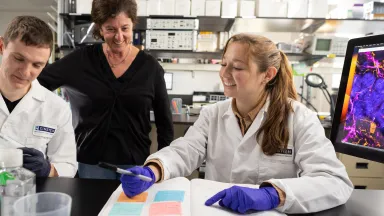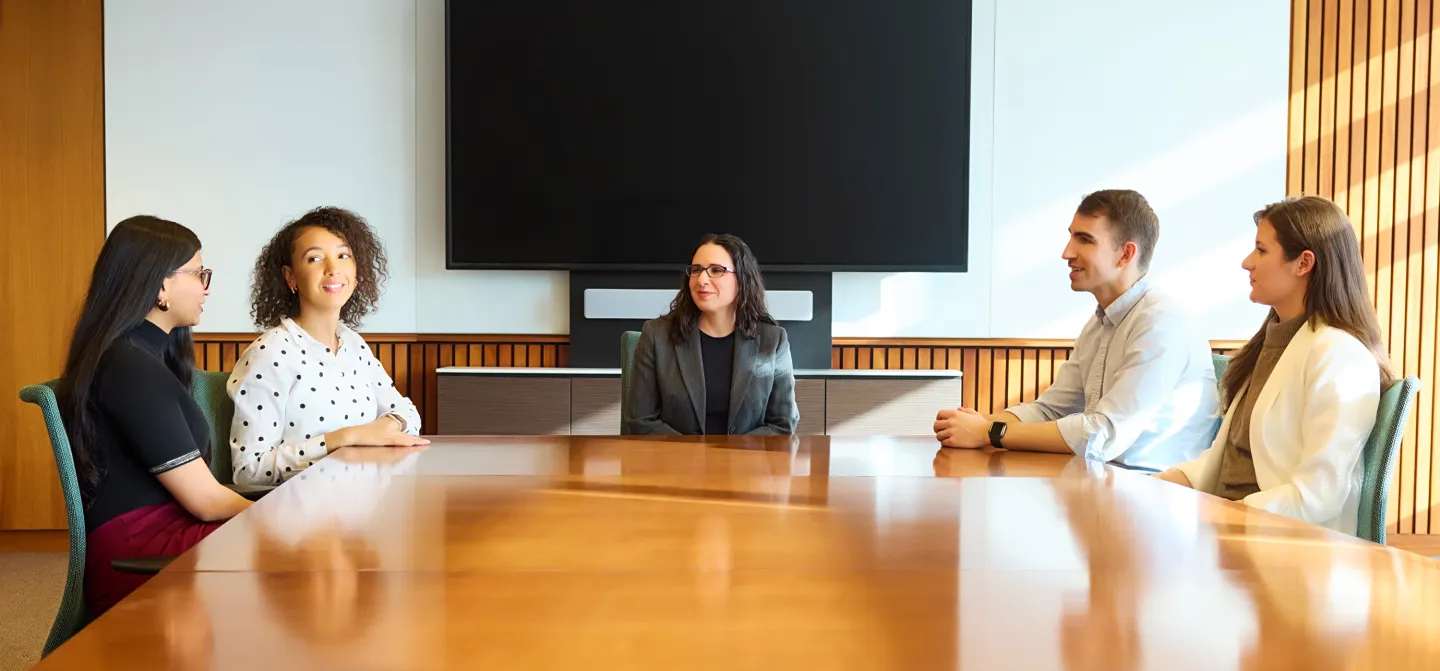Current Interns: 2025–26 Academic Year
Adult Specialization
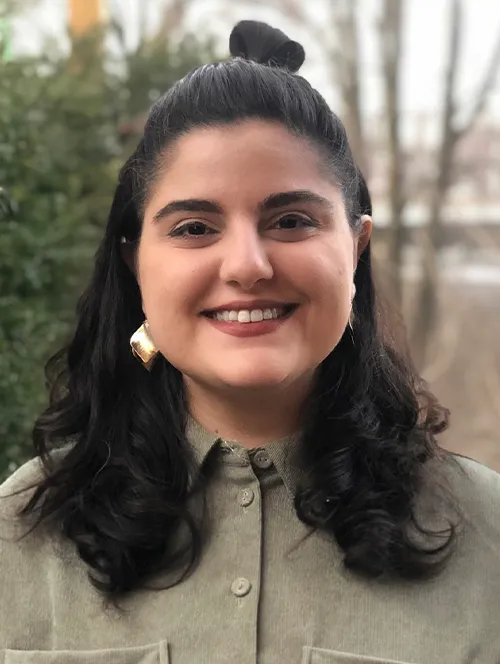
Ayse Esin Asan
Penn State University
Ayse Esin Asan is a doctoral candidate in the Clinical Psychology program at Penn State University. Her clinical practice centers on ongoing assessment of progress to tailor psychotherapy to her patients' unique needs, strengths and values. Essie is particularly dedicated to working with under-served communities and those who are at acute risk. She is also passionate about multidisciplinary collaboration, teaching and supervision. Essie's research broadly focuses on personality pathology, mentalization and interpersonal behaviors. Specifically, her research seeks to understand how naturalistic assessment of each patient's social and perceptual processes can be used to improve case conceptualization and intervention.

Stephan Brandt
Stony Brook University
Stephan Brandt is a doctoral candidate in the Clinical Psychology PhD program at Stony Brook University. Having received extensive training in various treatment modalities – including comprehensive dialectical behavior therapy (DBT), cognitive behavior therapy (CBT), and other transdiagnostic treatments – he uses an integrative approach to personalize treatment based on his patients’ unique needs and therapy goals. Stephan has worked with individuals, couples, and families across the lifespan and is especially passionate about providing affirmative psychotherapy to members of LGBTQ+ communities. While his research interests broadly consider associations between interpersonal relationships and mental health, he is particularly interested in building understanding of the ways that minority stress and other identity-based experiences can impact mental health, relationship functioning, and behavioral health outcomes (e.g., substance use) among LGBTQ+ individuals.
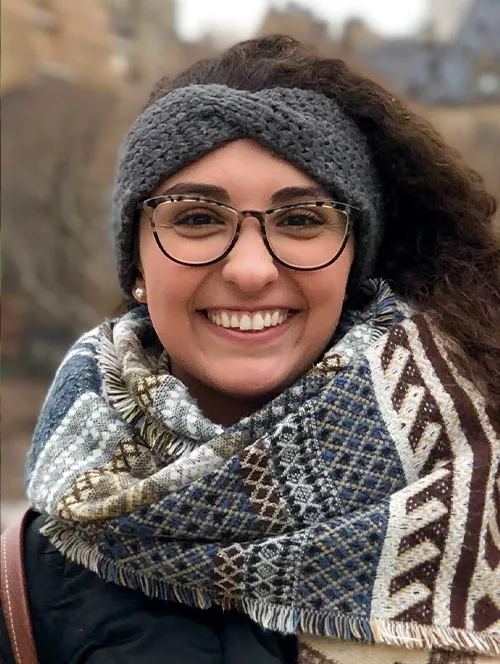
Manuela Jaramillo
University of Miami
Manuela Jaramillo (she/her) is a doctoral candidate in Clinical Health Psychology at the University of Miami. She earned her bachelor’s degree in psychology from Denison University and her master’s in clinical psychology from the University of Miami. Her research examines the interplay between mental health and obesity in Hispanics/Latinos, with her dissertation focusing on maternal depression and pediatric weight and health behaviors in the Hispanic Community Health Study/Study of Latinos. Clinically, she is passionate about working with adults with co-occurring mental and physical disorders and looks forward to developing a more integrative approach to psychotherapy during internship.

Amalia Tobias
Ferkauf Graduate School of Psychology
Amalia Tobias is a doctoral candidate in Clinical Psychology at Ferkauf Graduate School of Psychology. She earned her bachelor’s degree in psychology with a minor in music from Hamilton College. Amalia’s research focuses on shame mood induction procedures as it relates to the prevention and treatment of anxiety, depression, and other disorders. Amalia has extensive clinical experience across inpatient and outpatient hospital settings, community mental health clinics, and private practice settings. She has worked with individuals experiencing various mood and anxiety disorders, OCD, personality disorders and an array of co-occurring presentations, with specific training in cognitive behavioral therapy (CBT), exposure and response prevention (ERP), and dialectical behavior therapy (DBT). Amalia is committed to providing culturally informed evidence-based care while also integrating relational approaches in order to provide comprehensive treatment to best meet each individual’s needs. Amalia is thrilled to be a part of the psychology team at Montefiore and continue to serve the Bronx and New York communities.
Child & Adolescent Specialization
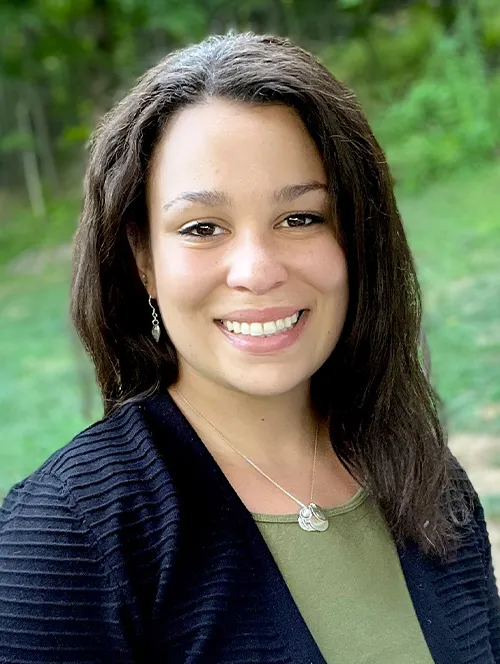
Dominique Legros
Pace University
Dominique Legros (she/her) is a doctoral candidate in the Clinical Psychology (Health Care Emphasis) program at Pace University. Dominique’s clinical interests center on providing adaptive, evidence-based treatment to support individuals impacted by anxiety, mood, and trauma related symptoms. Her research interests focus on risk and protective factors related to mental health outcomes following trauma, barriers to mental health care engagement, and comorbid psychological and physiological symptom experiences. Dominique has experience working with children, adolescents, young adults, and families within outpatient settings and multidisciplinary medical contexts and is dedicated to a holistic, trauma-informed, and culturally responsive approach to care.

Charlotte Marratta
Ferkauf Graduate School of Psychology
Charlotte Marratta is a doctoral candidate in the School-Clinical Child Psychology PsyD program at the Ferkauf Graduate School of Psychology. She has experience providing individual, group, and family psychological services across school, community clinic, outpatient hospital, and partial hospitalization settings. Her clinical interests lie in the use of cognitive-behavioral therapy (CBT), exposure and response prevention (ERP), dialectical behavior therapy (DBT), interpersonal psychotherapy (IPT), and trauma-focused CBT (TF-CBT) for youth with anxiety disorders, obsessive-compulsive disorder, mood disorders, and complex trauma. Her research interests center around supporting the identification and management of psychopathology throughout medical settings, with a particular interest in the screening and intervention practices for postpartum OCD. In both her research and clinical work, Charlotte is driven by a dedication to enhancing the accessibility of collaborative and multidisciplinary mental health care.
Combined Specialization

Jessica (Jessi) Karamourtopoulos
PGSP-Stanford PsyD Consortium
Jessica (Jessi) Karamourtopoulos (she/her) is a doctoral candidate in the Clinical Psychology program at the PGSP-Stanford PsyD Consortium. She is passionate about providing trauma-informed and culturally-responsive care that intervenes at individual and systems levels. Her clinical and research emphases center on complex trauma, personality, attachment, women’s health, parenting, and mindfulness. She is interested in the role of intergenerational and childhood trauma and developmental psychopathology. At the core, Jessi aims to reduce suffering and promote adaptive and sustainable change through an integrative treatment approach. Her passion for providing meaningful tools that disrupt maladaptive intergenerational patterns inspired her dissertation where she co-developed an integrative parenting intervention grounded in DBT. In her free time, Jessi enjoys running, hiking, reading, and spending time with her family and dog.
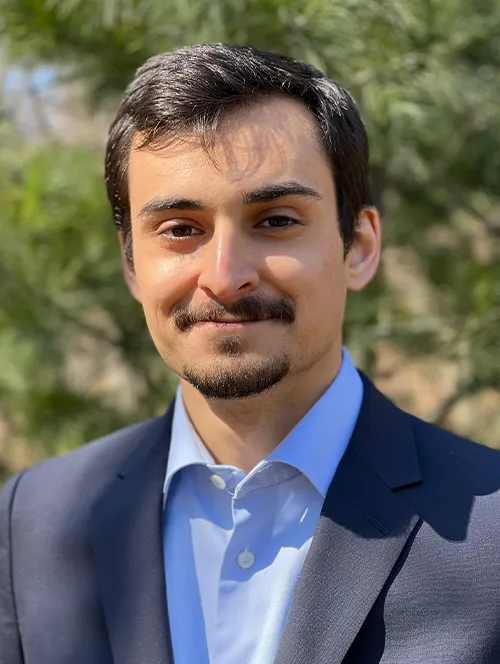
Travis Nair
Adelphi University
Travis Nair is a doctoral candidate in the Clinical Psychology program at Adelphi University. He has worked with adults, children, adolescents, and families with a variety of clinical presentations. In his approach, Travis strives to maintain a stance of curiosity, collaboration, and humility and to tailor interventions to individuals’ unique characteristics and lived experiences. He believes in the value of flexibly applying integrative approaches drawing from psychodynamic and cognitive behavioral modalities to best fit individuals’ needs. Travis has also conducted research on empathy, developmental psychopathology, parent-child attachment relationships, and family risk and protective factors, which inform his clinical work. In his free time, Travis dabbles in guitar and enjoys nature, watercolor, and drawing.
Neuropsychology Specialization
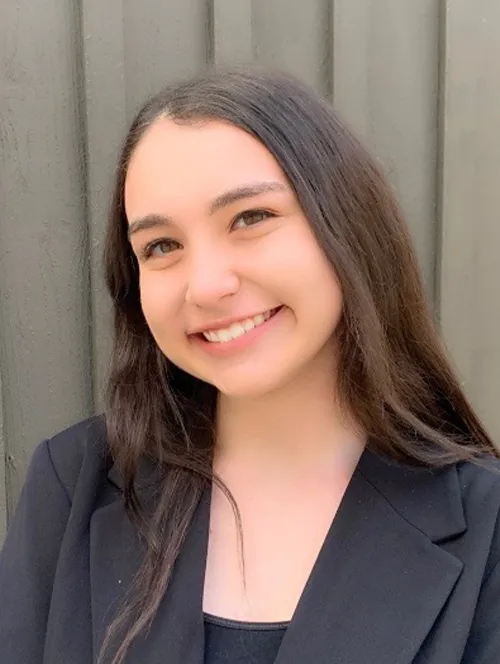
Blake Katz, M.A
Ferkauf Graduate School of Psychology
Blake Katz, M.A is a doctoral candidate in Clinical Psychology at Ferkauf Graduate School of Psychology. She holds a bachelor’s degree in psychology from Tulane University (2020) and a master’s degree in clinical psychology from Ferkauf. Blake’s research focuses on the benefits of Acceptance and Commitment Therapy (ACT) in addressing COVID-19-related distress. Clinically, she has worked in various settings, including community mental health clinics and hospitals. Blake is eager to continue her training in neuropsychological assessment across the lifespan and plans to complete a neuropsychology post-doctoral fellowship in the future.



